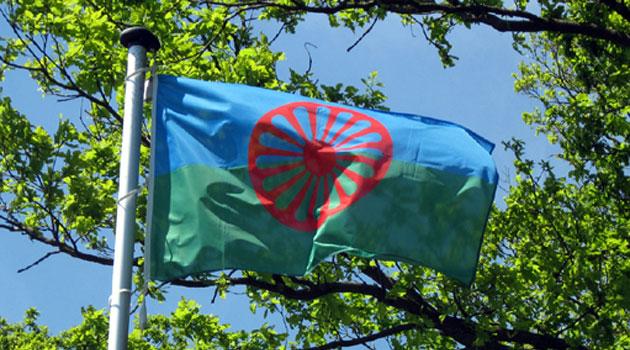European Roma Institute for Arts and Culture: Building the Future by Honoring the Past

The European Roma Institute for Arts and Culture (ERIAC) is a joint initiative of the Alliance for the European Roma Institute*, the Council of Europe and the Open Society Foundations. Following the approval of the establishment of ERIAC by the Committee of Ministers of the Council of Europe in September 2015, preparations for the creation of the Institute are now underway. Based on the proposal of the Alliance for the European Roma Institute, the German Government has endorsed the idea of inviting the European Roma Institute for Arts and Culture to set up in Berlin.
“The location of Berlin for the seat of the European Roma Institute for Arts and Culture sends a clear message," says Romani Rose, head of the German Council of Sinti and Roma. "In the center of Europe, in the most culturally vibrant European capital, there is a place to celebrate the resilience and creative power of Roma communities and to challenge the pervasive prejudice and stereotypes against Roma.”
This invitation to establish the European Roma Institute for Arts and Culture in Berlin is a historic moment for Europe’s Roma and coincides with the 45th anniversary of the World Romani Congress, which took place near London in 1971. According to the Romani activists who participated in that event, the formation of the World Romani Congress constituted a breakthrough for that new political movement, expressing the need for “international unity”, the need to combat social marginalization, and the need for a common vision for a positive future. Romani activists also claimed political recognition and self-determination, insisting that the term Roma be used in various international official documents as an umbrella category to indicate the different sub-ethnic groups that comprise the Romani people.
Today, on the 45th anniversary of the first World Romani Congress, it is possible to celebrate making ERIAC a reality. The Alliance looks to honor the past and, with the establishment of the Institute, to create a better future for all Europeans based on the legacy of the World Romani Congress.
Today, with an estimated population of 8-12 million, the Romani people are the largest minority group in Europe. Roma still face a high risk of poverty, exclusion, racial violence and discrimination. At the same time, Romani cultural and artistic production, Romani history and Romani contributions to national cultures and identities remain largely unknown and unrecognized.
“Making images about Roma has been the monopoly of non-Roma for over six centuries," says Timea Junghaus, art historian and founder of the European Roma Cultural Foundation (ERCF). "The past testifies that the cultural institutions of our majority societies alone were not effective in taking up the mission of making the European Roma and Roma arts and culture visible in our societies… There is now a critical mass of educated Roma artists, creative producers, scholars and intellectuals who can lead the discourse and practice of Roma representation. The Institute will be a hub for Roma to nurture and spark this movement in the field of arts and culture and, in the process, to challenge long-held assumptions and prejudices.”
The European Roma Institute for Arts and Culture will rigorously document Romani artistic and cultural heritage of all forms. It will also provide opportunities for creative exchange among the hundreds of Romani organizations and individuals who are active in the Roma cultural field.
One of the founding principles of the Institute is that Roma themselves should present the image of who they are and who they are not, so Romani intellectuals, artists, journalists, writers, linguists, historians, and members of other professions will lead the Institute, with the support and cooperation of others. According to Michaela Zatreanu, a Roma education expert, “The European Roma Institute for Arts and Culture is an organization by Roma and for Roma that, working through the arts, culture, history, language promotion and the media, will support Roma identity, promote better understanding of Roma, and combat the prejudice that is dangerously on the rise in Europe today.”
In the coming months, the founding partners will review the German Government’s offer to establish ERIAC’s seat in Berlin. Once the choice of seat is approved, the statutes of ERIAC will be drafted and the Institute will be formally established to begin its work. ERIAC is envisioned as a membership organization that Roma and non-Roma individuals and organizations will be welcome to join in order to support the Institute’s work and contribute to its development.
*The Alliance for the European Roma Institute is a coalition of Roma civil society organizations, activists, scholars and artists. The Alliance is the driving force in making the Institute a reality, with the support of the Council of Europe and the Open Society Foundations.
The Alliance for the European Roma Institute:
Katalin Barsony, Executive Director of Romedia Foundation, CEO BAXT Films, Myagunya Fellow of the Victorian College of the Arts at the University of Melbourne
William Bila, Board member of the Roma Education Fund
Nicoleta Bitu, Director of the Centre for Romani Studies in Bucharest
Ethel Brooks, Professor of Women’s and Gender Studies and Sociology, Rutgers University and Member, US Holocaust Memorial Council
Timea Junghaus, curator, researcher and art historian at the Hungarian Academy of Science
Sead Kazanxhiu, artist
Angéla Kóczé, Visiting Assistant Professor of Women’s, Gender, and Sexuality Studies, Wake Forest University
Saimir Mile, lawyer and expert on Romani language
Andrzej Mirga, Chair of the Board of the Roma Education Fund
Anna Mirga-Kruszelnicka, anthropologist, PhD candidate at the Autonomous University in Barcelona
Ciprian Necula, Roma activist, associated professor to SNSPA Bucharest
Dijana Pavlovic, actor and producer
Nadir Redzepi, Executive Director of the Roma Education Fund
Romani Rose, head of the German Council of Sinti and Roma
Iulius Rostas, Professor, Corvinus University in Budapest
Mihaela Zatreanu, National Program Officer – ROMACT, Romania